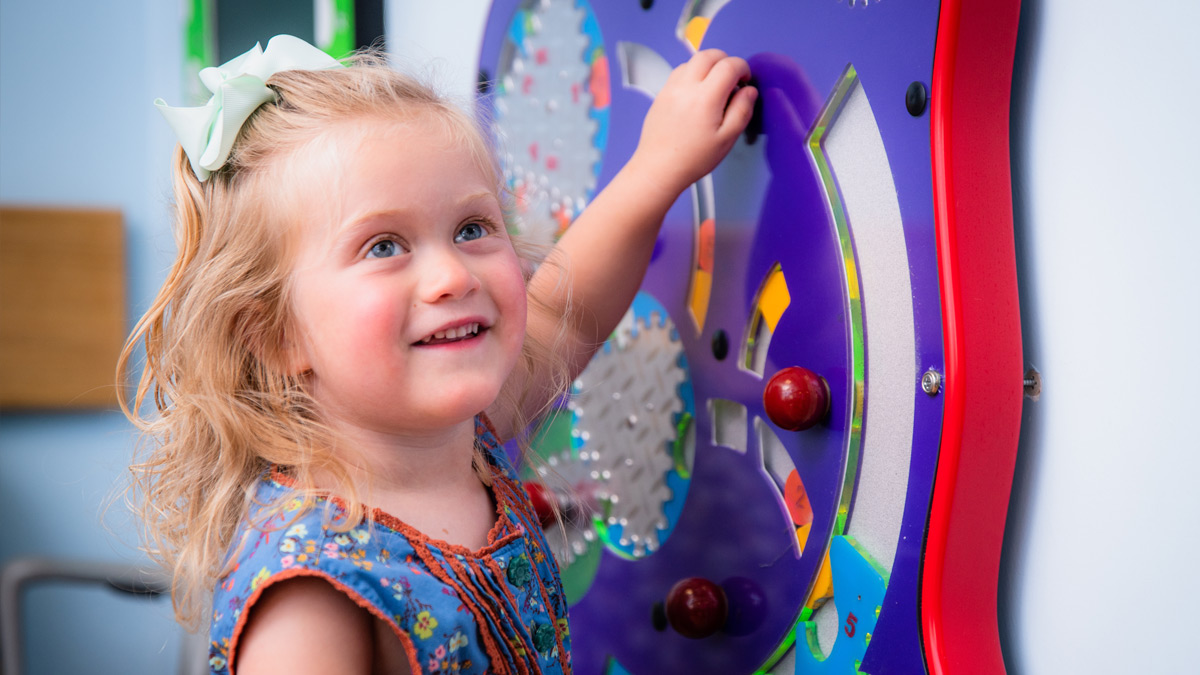Autism: Why Early Intervention Is Critical and What to Do If You're Concerned
April 10, 2024
Categories: Pediatrics
Babies are social creatures. They are born with social instincts that do not need to be taught. Parents often monitor important milestones like crawling, walking and talking, but new parents may not be as aware of the social skills they should expect to see in their baby. These early social skills are an essential part of early brain development and are just as important as walking and talking.
not be as aware of the social skills they should expect to see in their baby. These early social skills are an essential part of early brain development and are just as important as walking and talking.
Typical Development of Social Skills
Social skills start out very simple – like turning toward the sound of your voice around two months old – and become increasingly complex over the first two years of life. Babies should want to be around others and show pleasure in social interactions. They should readily look at your face and into your eyes. Babies should be interested in getting their parents’ attention. Over time, your baby will want you to pay attention to them while they explore items and will start to notice your reactions.
Babies develop a range of facial expressions like smiling and frowning, and it should be easy to get your baby to smile at you. As they approach 10-12 months of age, babies will start to make different noises to express their emotions. They will start to use gestures, such as pointing and showing you items, to share their interests. These social skills come automatically to babies and are part of normal brain development.
Learning more about developmental milestones can help parents spot unusual patterns to discuss with their pediatrician. The Center for Disease Control and Prevention (CDC) offers milestone checklists to help parents understand the social, communicative, cognitive and physical milestones for children by age.
Early Signs of Autism
When a child is born with autism, that child does not have the same drive to be socially engaged. Babies with autism may not look at faces, respond to their parents’ voices or seek attention in the way that other babies do. They may not smile at their parents, share their interests, use gestures or include others in their exploration and play.
If babies and toddlers are not socially engaged, they miss out on critical experiences that help them develop language and cognitive skills. One of the main ways babies learn is by paying attention to their parents and noticing their speech and behavior.
For instance, one of the earliest ways babies learn language is by showing items to their parents. The parent will usually name the item, which helps the baby learn its label. A baby who does not share their interests in this way, or who does not pay attention to their parents’ speech, misses out on these critical building blocks for language. In fact, one of the earliest signs of autism parents tend to notice is that their child is not learning to talk.
Early Diagnosis Is Key
If young children with autism do not receive support in their learning, they may miss the window to develop important brain skills. The brain of infants and toddlers is specially wired for learning, and this ability lessens as children age. Missing these opportunities can have negative long-term effects on their brain development.
Early diagnosis and intervention for autism are the best tools to improve long-term outcomes. The goal of early intervention is to help a child keep up as closely as possible with their typically-developing peers. This is accomplished by helping the child to be more engaged with everyday learning opportunities.
The idea that there might be a problem in your child’s development is scary. Many parents and sometimes even medical professionals want to ‘wait and see’ whether these delays will resolve themselves. Waiting too long can unfortunately cause us to miss critical periods for intervention.
What To Do if You’re Concerned
If you are concerned your baby shows early signs of autism, don’t wait. Consider the following steps:
- Reach out to your child’s pediatrician and share your concerns.
- Monitor your child’s social developmental milestones. You can use the Centers for Disease Control & Preventions (CDC) milestone guidelines or use a resource like the Baby Navigator or CDC’s Milestone Tracker to track social development.
- Contact Early Steps, a statewide Florida program that provides early intervention services.
- Have your child evaluated by a psychologist who specializes in autism.
Neuropsychology is a branch of psychology that studies how a person's cognition and behavior are related to the health of underlying brain structures. In the pediatric population, neuropsychologists are specially trained to evaluate children who have medical or neurodevelopmental conditions affecting their cognitive function. As a neuropsychologist, I have been a part of TMH for 3 years and have evaluated children with a wide range of neurologic and neurodevelopmental disorders in the Big Bend region, including autism. I’m passionate about helping to identify autism in young children because early intervention is so crucial and can have long-term benefits towards a child’s development.
To learn about clinical neuropsychology and services available for individuals with autism at TMH, visit TMH.ORG/NeuroPsych.
References:
Baby Navigator. (2023). Social communication growth charts. https://babynavigator.com/scgc/
CDC’s Milestone Tracker. (2023). CDC’s Milestone Tracker App. https://www.cdc.gov/ncbddd/actearly/milestones-app.html
Iverson, J. M., & Goldin-Meadow, S. (2005). Gesture paves the way for language development. Psychological Science, 16(5), 367-371.
Zubler, J. M., Wiggins, L. D., Macias, M. M., Whitaker, T. M., Shaw, J. S., Squires, J. K., ... & Lipkin, P. H. (2022). Evidence-informed milestones for developmental surveillance tools. Pediatrics, 149(3).
Zwaigenbaum, L., Bauman, M. L., Choueiri, R., Kasari, C., Carter, A., Granpeesheh, D., & Natowicz, M. R. (2015). Early intervention for children with autism spectrum disorder under 3 years of age: recommendations for practice and research. Pediatrics, 136(Supplement_1), S60-S81.

